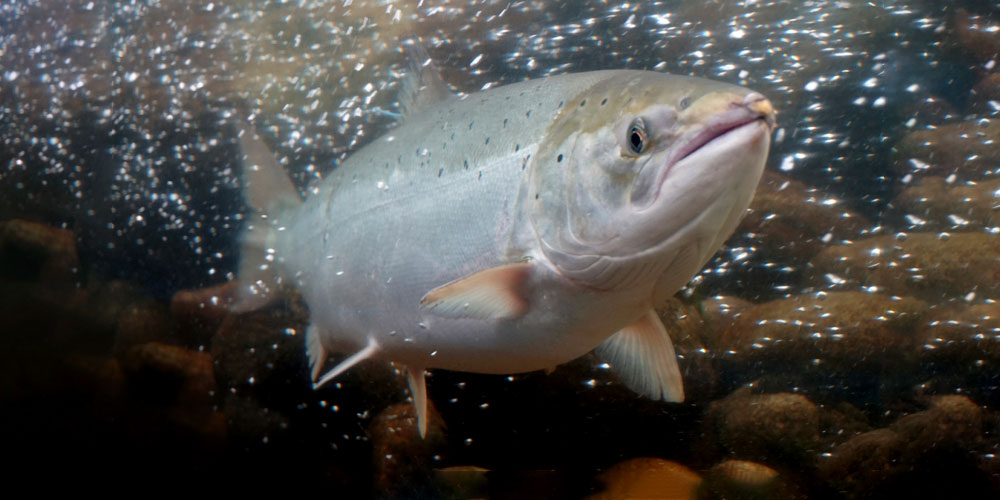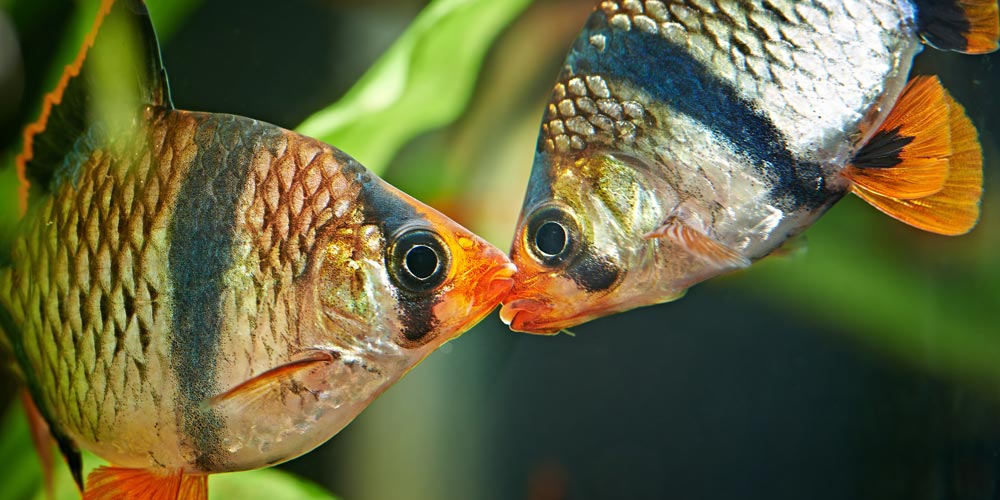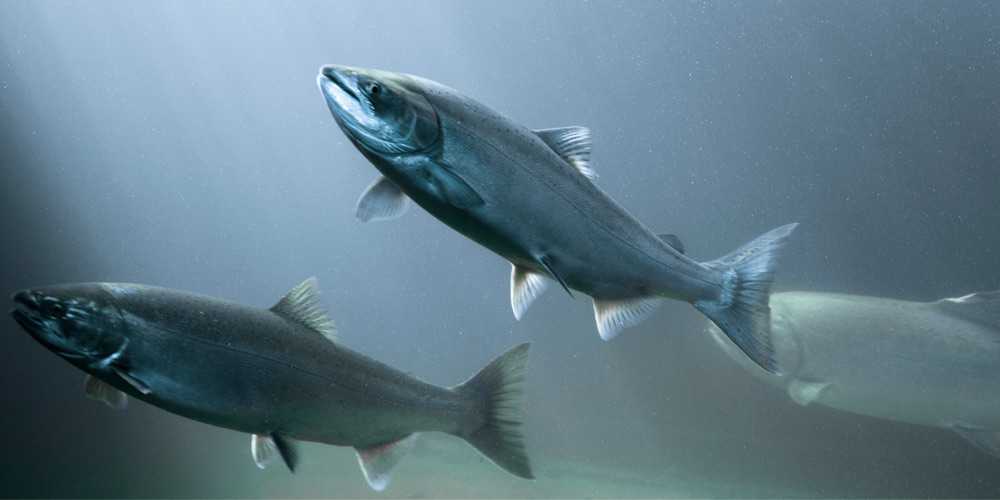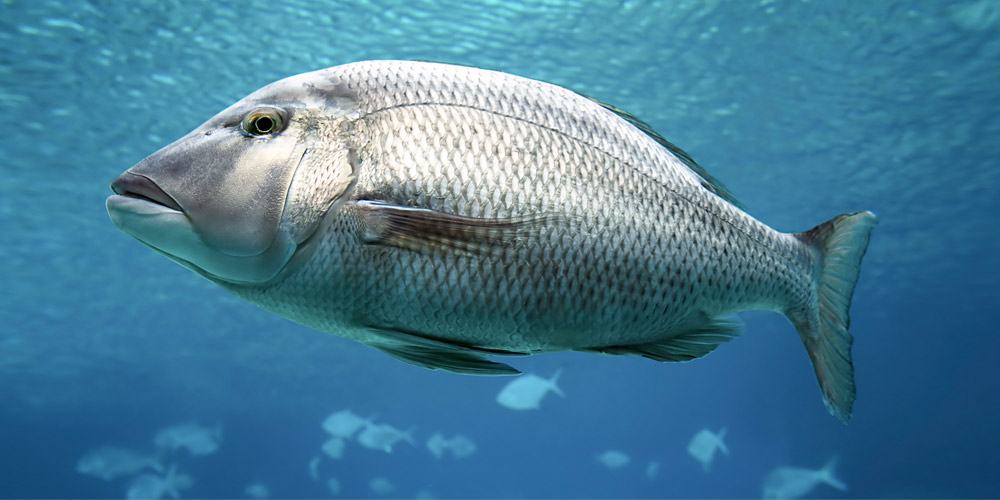There’s more to fish than what most of us have been told…
Fish are amazing animals who experience the world in many ways that are similar to us. Their capacity to suffer and experience emotion has been long overlooked, but research is revealing more and more why these animals deserve our care and consideration. Discover for yourself…
 1 Fish have feelings
1 Fish have feelingsWhile we might not be able to read pain on a fish’s face, the evidence is increasingly clear that they experience a range of emotions including fear, joy, relaxation and playfulness. We know that fish have receptors to feel pain, experience stress when they are confined and, like us, try to avoid frightening events. So when a fish is dragged out of water by a metal hook that has pierced his mouth it causes him significant pain and stress. So much so that research has found that if he survives, he’s likely to avoid being caught again. Aquarium-bound fish have been seen playing (and possibly trying to reduce boredom) by riding the current of water pumps in their tanks, while other fish have been observed toying with objects seemingly for fun.
 2 Fish have unique personalities
2 Fish have unique personalitiesWhen we think of fish, we often see them as a collective without much variation between individuals. Recent research, however, is showing that fish do, in fact, have their own unique personalities — some are bolder and more eager to explore while others are more timid and tend to take less risks than their peers. Just like us, personality traits between fish vary depending on the genes they inherit from their parents and their own life experience.
 3 Fish have rich social lives
3 Fish have rich social livesPublic life and reputation can be just as important to a fish as they are to us. Fish recognise and remember other individuals and build complex social networks. They know when they’re being watched by others and often alter their behaviour accordingly. ‘Bystanders’ can learn about the social status of an individual just by watching interactions between other fish. They nurture friendships with affection and have a host of amazing ways to communicate. While we’re used to hearing the serenades of birds, some fish call to each other with sounds of chirping or foghorns.
 4 Fish have impressive memories
4 Fish have impressive memories The memory span of goldfish has long been underestimated but it’s finally been revealed that their long-term memory can last for many months at least. Perhaps the most impressive example of a fish’s memory is how, after several years, a salmon can follow her nose home. Amazingly, she remembers the specific smell of the stream in which she was born. Salmon will often battle strong currents, predators and even leap up waterfalls on this exhausting journey upstream.
 5 Fish are clever
5 Fish are cleverFish can learn how to use tools, build nests and, in some cases, outperform primates with their learning abilities. Some fish have figured out impressive ways of obtaining food, like squirting jets of water from their mouth to capture insects above the surface and using rocks to open shells. They create burrows and chambers under the seabed for shelter, lining these structures with coral for added strength. Some fish build nests to hide their eggs from predators. Others bury themselves under sand and coral for protection to sleep or will even steal someone else’s bed if they like the look of it!
Fish are complex individuals, but sadly they are some of the most abused animals on the planet. Each year, demand for fish and fish products means that trillions of these intelligent, sensitive individuals are dragged out of oceans or raised in factory farm conditions.

Facebook Comments